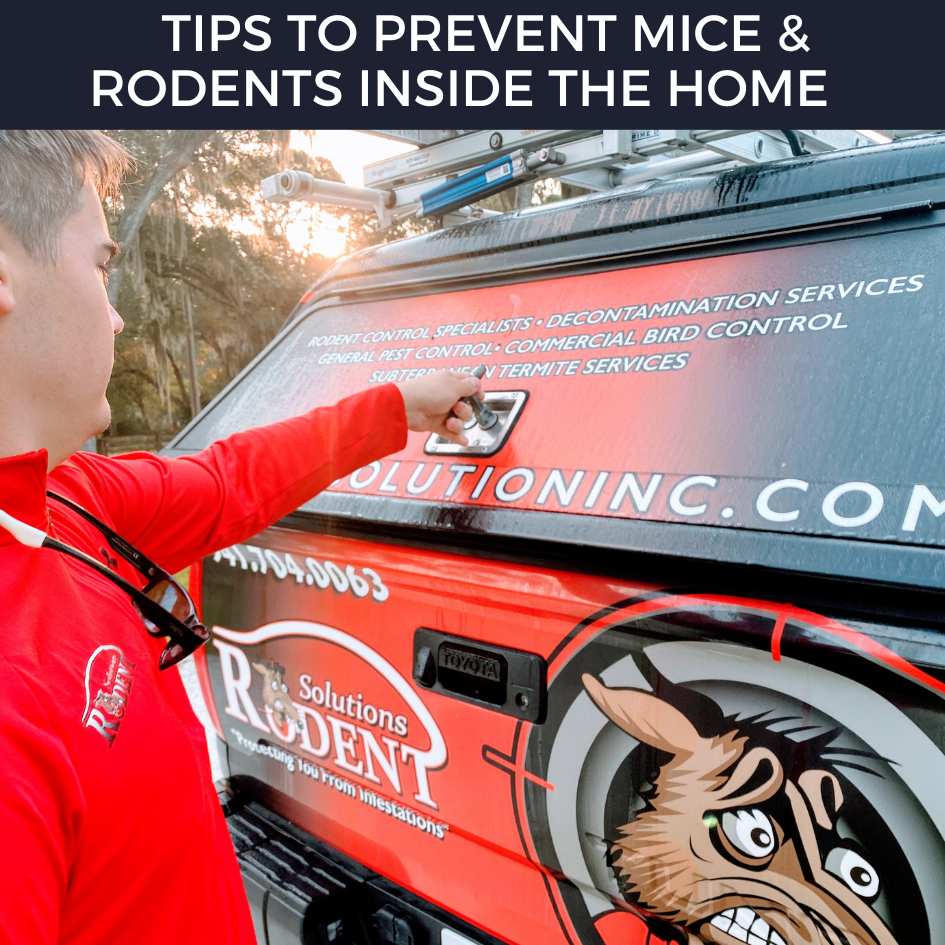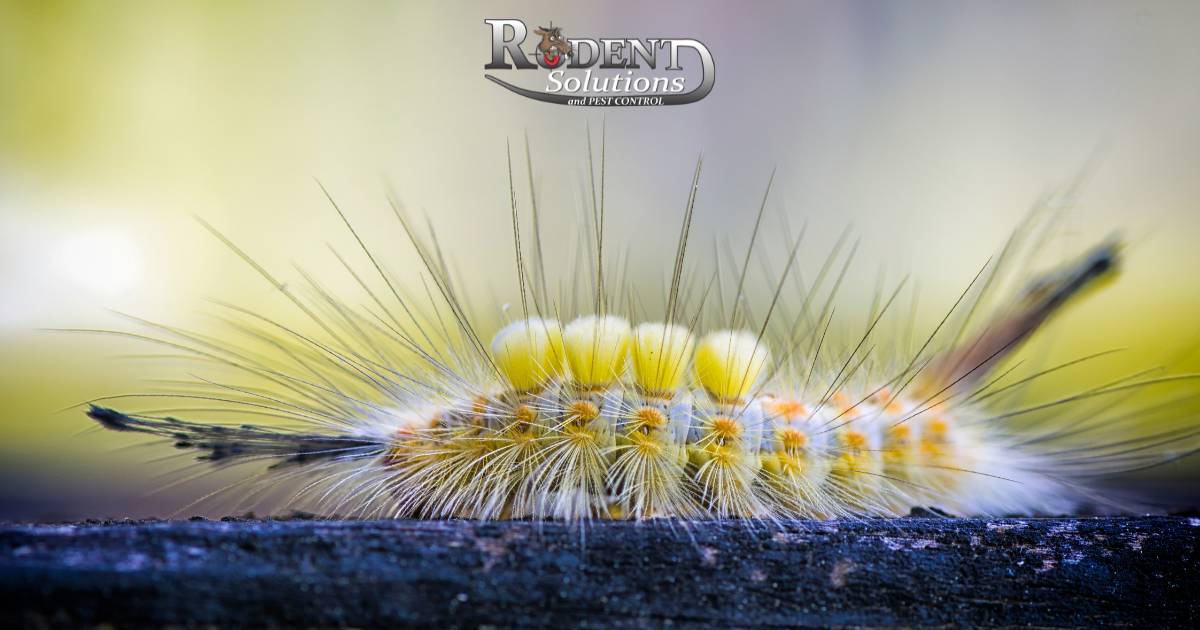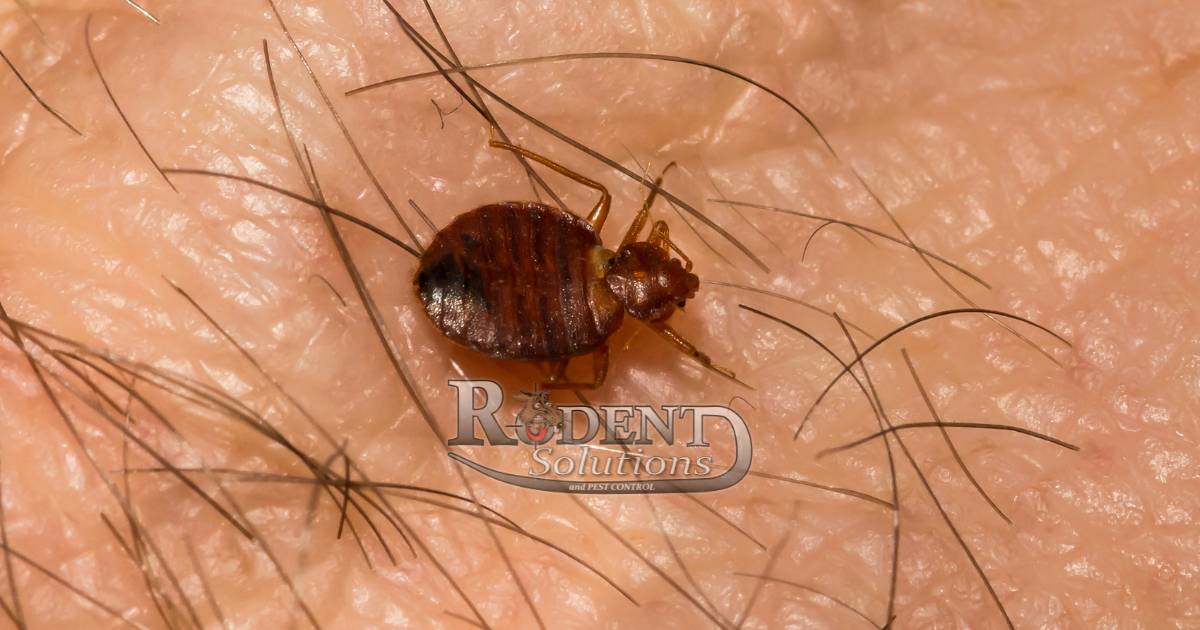Preventing Rodents Can Start With You
Almost all homeowners know the feeling of unease that accompanies finding mice or rodents (rats, mice, or squirrels) in your home. Whether in the kitchen, attic, or garage – a rodent sighting can incite surprise and fear in even the most composed homeowner. Unfortunately, these common pests are resourceful creatures that can enter a building or home through the smallest opening or crack and require very little space to travel inside. Mice can easily fit through spaces as small as a nickel! See these 10 easy tips to prevent mice and rodents inside the home.

Rodents seek shelter indoors, looking for a safe place to nest away from predators. Once inside, they can cause more than just an unpleasant infestation. Rodents put homes at risk for electrical fires by gnawing through wires. More frequently, though, rodents serve as vectors for disease, carrying bacteria, such as salmonella, on their bodies and contaminating food sources, kitchen surfaces, and equipment. The common white-footed mouse and the deer mouse is also known to transmit the potentially fatal Hantavirus.
Easy Rodent Control Tips
Fortunately, there are many ways homeowners can proactively prevent and control rodent infestations in their homes using some of our easy rodent exclusion control tips:
-
- Install door sweeps on exterior doors and ensure all roll-up garage doors close properly. This will prevent mice and other rodents from being able to enter.
- Use hardware wire to rodent-proof exhaust vents as a low-cost rodent control material.
- Seal cracks and holes outside the home, including areas where utilities and pipes enter the home, using rodent-proof materials. This is called a rodent exclusion and is the most important part of rodent prevention from the house.
- Store food in airtight, glass, or metal containers. Those are the only materials that rodents can’t gnaw through.
- Secure all soffit terminations and gaps. Remember to be detailed as mice can fit through very tiny openings.
- Secure the areas where AC lines enter your home. Rats and mice are drawn to these areas because the copper line carrying the AC system refrigerant will sweat in the heat. This provides a water source and an entry point into the home.
- Eliminate yard debris and ground coverings to reduce hiding places for nesting mice and rats.
- If you’re moving out of a storage facility in the Sarasota area, inspect the items retrieved. During a move, look at boxes, grocery bags, and other packages before you bring them into your home. Rats and mice are very commonly found in storage facilities.
- Store firewood and lumber stacks as far away from the home as possible.
- If you suspect a pest infestation in your home, be it rats, mice, squirrels, or insects, contact a licensed pest control company to handle the issue before it multiplies into a really serious pest problem. Rodents or pests of any kind should not be taken lightly
If you spot evidence of a rodent infestation, do not hesitate to call a pest control company that specializes in rodent control, such as our team at Rodent Solutions, to handle the problem. Rodents reproduce quickly; a small problem can become a big issue overnight if left untreated.

Pest/Wildlife Control 15 Years
Construction for 13 Years
Pest Control License JB299099
Wildlife License LW203605
Pest Management University: Founders and Masters
AAS Degree in Drafting Design with a Concentration in Building Construction
NWCOA Member (National Wildlife Control Operators Association)
NWCOA Rodent Standard Certified
NWCOA Bat Standard Certified
NCWOA Certified Urban Bird Management Operator
NWCOA Zoonotic Disease Standard Certified
Member of the National Pest Management Association (NPMA)
Bird Barrier Certified Installer
Bird-B-Gone Authorized Installer
OSHA 10 Training Completed for the Construction Industry
Aerial Lift Certified
Fall Protection Certified




